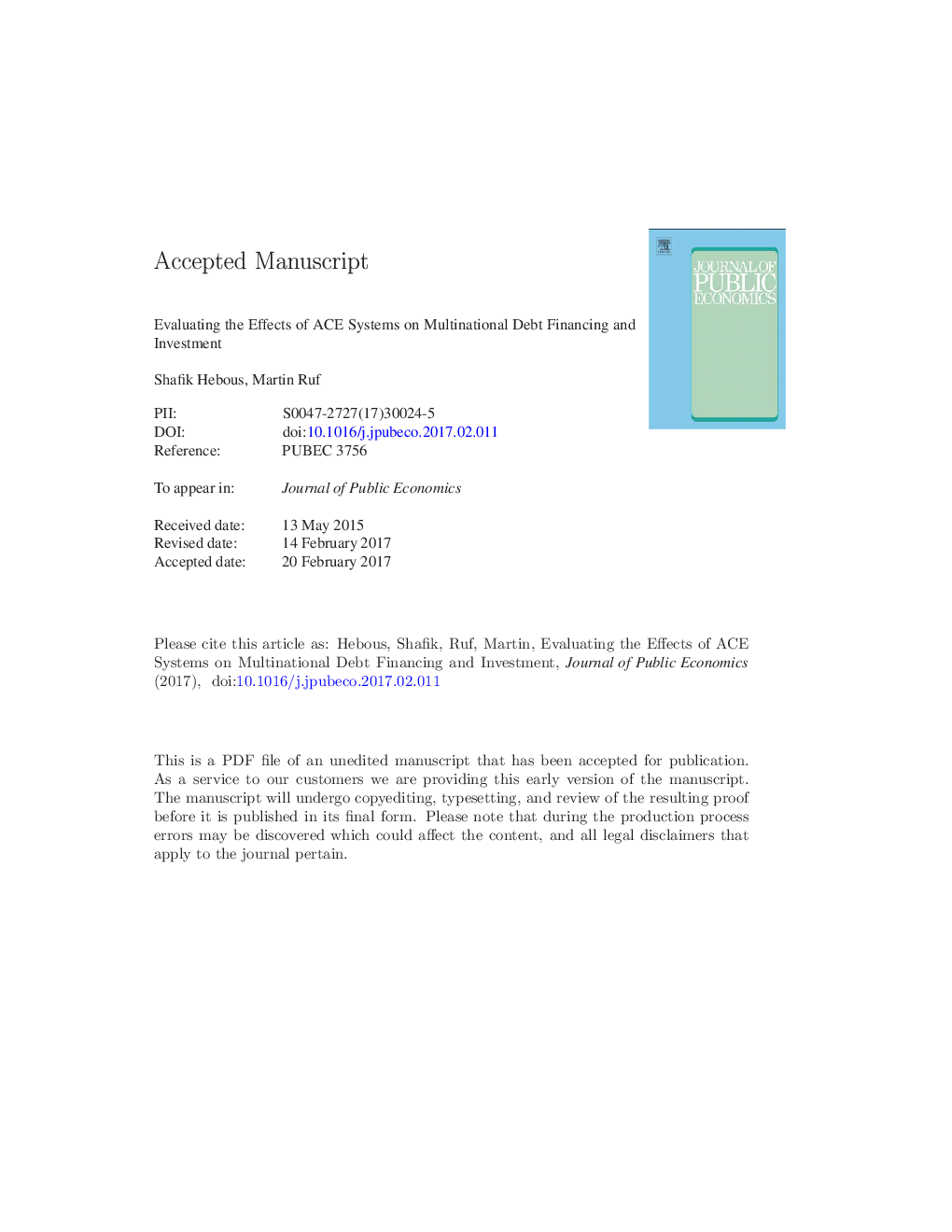| Article ID | Journal | Published Year | Pages | File Type |
|---|---|---|---|---|
| 7369712 | Journal of Public Economics | 2017 | 52 Pages |
Abstract
Theory recommends aligning the tax treatment of debt and equity. A few countries, notably Belgium, have introduced an allowance for corporate equity (ACE) to achieve tax neutrality. We study the effects of adopting an ACE on debt financing, passive investment, and active investment of multinational firms, using high-quality administrative data on virtually all German-based multinationals. We use two main identification strategies, based on (1) synthetic control methods and (2) variations across affiliates within the multinational group. Our results suggest that an ACE reduces the corporate debt ratio of multinational affiliates. Additionally, an ACE increases intra-group lending and other forms of passive investment but has no effects on production investment of multinational affiliates. The findings indicate that a unilateral implementation of an ACE system generates a tax planning opportunity using a structure combining the benefits from the ACE with interest deductions.
Related Topics
Social Sciences and Humanities
Economics, Econometrics and Finance
Economics and Econometrics
Authors
Shafik Hebous, Martin Ruf,
